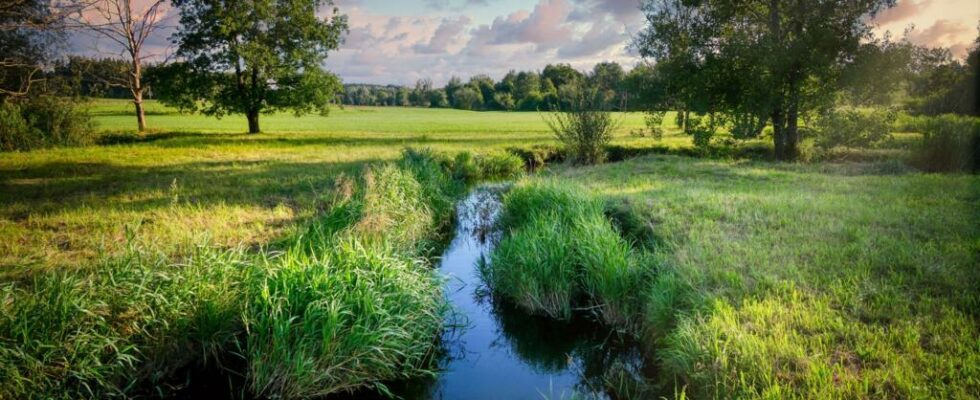“ European waters are not healthy “. This is the conclusion of a report from the European Environment Agency published Tuesday October 15 and which brings together data provided by 19 EU member states. The cause is pollution and the overexploitation of resources, accentuated by the effects of global warming.
2 mins
It is the largest study devoted to the quality of European waters. 120,000 surface water bodies, lakes, rivers, coastal waters and 3.8 million km² of groundwater were analyzed, with very disappointing results. Only 37% of surface waters are in good ecological status. A figure which rises to 77% for groundwater.
“ The health of European waters is not good. Our waters face a series of unprecedented challenges that threaten water security in Europe », says the director of the European Environment Agency (EEA), Leena Ylä-Mononen, in a press release.
Unsurprisingly, it is intensive agriculture, with the use of pesticides and nitrates, which has the greatest impact on the resource. But the poor quality of surface water is also explained by the persistent presence of long-lived pollutants, such as mercury from coal combustion.
Also readGlobal fresh water quality is deteriorating, UN Environment report says
European Environment Agency calls for change in agricultural practices
According to the report, it is therefore urgent to change agricultural practices, making them less polluting and less water-intensive. Improving the management and use of this resource is also a priority due to climate change. “ European agriculture must make greater use of more sustainable natural and agroecological practices, accompanied by incentive measures and a change in our eating habits », recommends the report.
“ We must redouble our efforts to restore the health of our precious rivers, lakes, coastal waters and other water bodies and to ensure that this vital resource is resilient and secure for generations to come », insists Ms Ylä-Mononen.
Water shortage today affects 20% of European territory and 30% of the population. Without a change in behavior, the situation could worsen and endanger the internal cohesion of the EU.
Also readAn “eternal pollutant” found massively in European drinking water
Pesticides: water pollution in France “very underestimated” due to lack of monitoring, according to the NGO Générations Futures
Water pollution in France is “ very underrated » because dozens of pesticide metabolites, molecules resulting from their degradation and potentially toxic, are not subject to any monitoring, denounces a report published by the NGO Générations Futures.
“ Many pesticide metabolites officially at risk of exceeding the drinking water standard have not been monitored in groundwater or drinking water in recent years », warns the environmental defense association. The NGO claims to have identified 56 pesticide metabolites that have not been subject to any monitoring even though they risk contaminating groundwater at concentrations greater than 0.1 g/l, i.e. the regulatory limit, according to their analysis of the work of ANSES (National Agency for Food, Environmental and Occupational Health Safety).
Metabolites are molecules resulting from the degradation of chemical substances, such as pesticides, which can then be found in soil, surface water and groundwater, before contaminating drinking water catchment areas. “ Among these 56 metabolites not monitored, we identified 12 metabolites particularly at risk », Affirms the association, including trifluoroacetic acid (TFA), a very persistent molecule already in the sights of the European Pesticide Action Network (PAN Europe).
TFA comes from the degradation of certain “eternal pollutants”, PFAS, which are substances present in pesticides, refrigerant gases, non-stick pan coatings, firefighting foams or cosmetics, and particularly in discharges from the factories that produce them.
